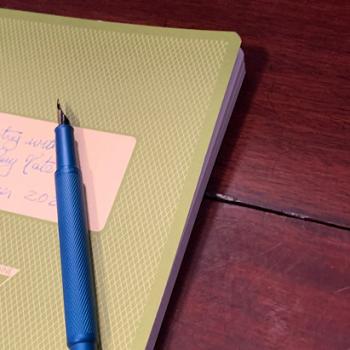It is the middle of March, so I am reading Middlemarch. This plan has been much more cheering than the year I studied Julius Caesar during the Ides of March. Middlemarch may be the best novel written in English, though perhaps not. Unlike Pride and Prejudice, the novel meanders and it does not sparkle with the wit of Great Expectations. The sermonizing is not as effective as Small House, but still Middlemarch does everything attempted about as well as it has ever been done. Once one reads George Eliot, one has read nothing novel, but a perfection of the Victorian novel.
I read to learn and one character in Middlemarch is a warning to any academic: the Reverend Casaubon: devoted to the point of inanity to scholarship. Characters in Middlemarch try to hide selfishness by talk, religious talk, business talk, or romantic talk, Casaubon uses the language of the Oxbridge of his era.
For Eliot, selfishness undermines any good intentions if it is not brought to the light. A man or woman must acknowledge his or her mixed motives in order to have any hope to do more good than harm. Casaubon is haunted by knowledge of his scholarly inadequacy, his emotional impotence, and his selfishness, but he will not repent. Repentance requires recognizing error and Casaubon will not acknowledge that he devoted his life to failure.
Casaubon is stuck studying irrelevancies. He will never finish his “great work,” because there is no great work to finish. Casaubon knows this in his heart, but he must work ever more diligently to hide this fact. He must footnote his footnotes, because scholarship has passed his education and scholarship.
He is unwilling to be a teacher, a helper, a muse. He wants to be a great man, but he is not. When I think of the small gifts I have, then I must accept my place. Academics, unlike athletes, find it easier to hide impotence through posturing as pregnant with thought when we only grow fat on our windy promises of future intellectual offspring.
Casaubon thinks so much he no longer feels. We become like the god we worship and Casaubon has become dusty in his heart. Just as making money can be good, but only in limits, so scholarship can be good, but only in limits. Cultivating other areas of life allows scholarship to shrink to an appropriate size.
The academic who does fantastic work in his or her field, but is (at best) unhelpful to those unfortunate enough to love them is too common. If I am not careful, then my reading will become my god. Ideas are to be incarnate, but some people begin to become an idea. I am not Republic. I am not the Bible. I must use the books to become a better man, not become a bookish man.
Casaubon confuses right words and proper actions with virtue. He was (as my grandfather put it) “so straight he leaned a little.” His actions were unexceptionable, but so cold that he made decent people take exception. After all, my family do not want me merely to do my duty or say the right words: they want my love. Getting all the notes and all the music perfectly, but without feeling can be worse than making mistakes, with good intention.
Casaubon’s selfishness begins in his worship of his scholarship, because that scholarship has become his scholarship. He cannot debate his ideas without making the debate about him. This selfishness cannot be compartmentalized from the rest of his life and relationships. He serves His Scholarship and soon all those around must do so as well. Casaubon is a decent man who becomes an abusive husband, but he does not recognize this obvious sin. Why? He sins in almost (though not quite) total ignorance, because he exists to serve an apparently external object: Scholarship. He cannot see this Scholarship god has become conflated with Casaubon.
He has become his book and just his book is null and void so his soul becomes a great nullity. He is dead long before he dies.
My middle of March reading reminds me of the errors of Casaubon and I beware. He is not a particularly bad man, though he does particularly odious things, and so it takes a great writer to make this evil plain to me. After all, externally Casaubon is better than I am. Mostly I would be better off I spoke as thoughtfully, worked as diligently, and lived as moderately as Mr. Casaubon. After all, if my emotional life is richer, that virtue does not justify my practical or behavioral failure.
Intention may be the content of morality, but one does need to actually do the moral thing. Casaubon means well and often does well, but no longer feels well. He has allowed his job to consume his emotions and so nothing is left but the hollow shell of virtue. In the end, this allows a deep selfishness to undermine all the good Casaubon attempts.











